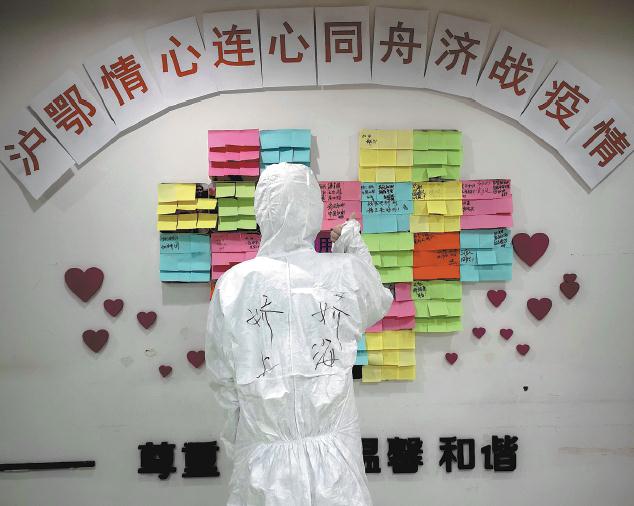Psychologists unite to help front-line medical workers


Psychologists said people from different communities could be affected in view of the rising number of cases nationwide since the end of last month. They may also experience severe emotional distress, trauma and acute mental problems.
Those particularly at risk include front-line medical workers facing tremendous physical and mental stress; frightened patients, who may also be grieving; those suspected of becoming infected who have been placed under quarantine and who may face public criticism; and people who stay in isolation during the observation period who feel lonely and vulnerable.
Many Chinese psychologists at home and overseas are aware of these difficult situations and are providing help, thanks to the internet. They are paying special attention to frontline medical workers racing against time to fight disease and death.
In addition to medical workers based in Wuhan, more than 11,900 doctors and nurses from across the country had arrived in the city and neighboring areas by Feb 9 to provide support.
Liu Hongye, a psychiatrist from Tongji Hospital of Tongji University in Shanghai, said tired doctors and nurses are working longer hours without any breaks for refreshment. Some of them might feel trapped and helpless when there is a shortage of medical supplies and protective clothing.
"They have changed into such clothing and are displaying the utmost professionalism in trying their best to save lives. But, in the final analysis, they're just another group of ordinary people like you and me," Liu said.
Zhang Wenhong, director of the Infectious Disease Department at Shanghai Huashan Hospital, who heads the team of experts battling to contain the spread of the novel coronavirus in the city, said psychological intervention for frontline medical workers and patients under quarantine and treatment must begin immediately.
On Jan 27, the National Health Commission's disease control bureau issued a guideline, requiring provinces and cities to provide counseling and intervention for those affected by the outbreak.
Lin Zi, deputy chairwoman of the Shanghai Psychological Counseling Association, said international experience showed that setting up a system to tackle a psychological crisis, combining the efforts of public health authorities and professional therapists, is vital.
The combined efforts of both government authorities and the public are also highly important, according to Lin, who has formed a team of about 30 professionals, including 13 based overseas, to provide online support to those who need psychological assistance.
Even before the NHC's guideline was issued, many psychologists had joined efforts to provide help for free. By Jan 25, Lunar New Year's Day, about 400 of them had begun to provide assistance via phone hotlines, WeChat and other online groups.
Yu Lingna, a psychologist living in Japan, recruited more than 70 of her peers to work online for WeChat groups to provide support for some 300 people requesting help, mainly doctors, nurses and patients confirmed with the virus in cities locked down amid the outbreak.
"Thanks to the internet, we can provide round-the-clock help and we don't need to go to a particular location," Yu said.
A two-hour real-time question-and-answer session with leading counselors will be offered twice a week in the online chat groups. Additional volunteers will answer queries when these sessions are not being staged.
"We hope to assist those seeking help for emotional and acute psychological symptoms, promote mutual links and support between them, give psychological advice and provide support when they feel overwhelmed by the situation," Yu said.



































